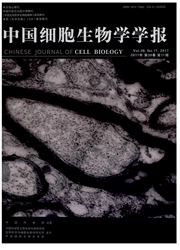

 中文摘要:
中文摘要:
Wnt信号分子是一类在无脊椎与脊椎动物的多种组织中广泛表达且进化上高度保守的信号刺激因子,由于它们在生长、发育、代谢和干细胞调节等多种生物学过程中的重要生物学功能而被广泛重视。根据其激活的信号通路不同,Wnt分子可分为经典和非经典两类。经典类和非经典类Wnt分子分别通过激活β-catenin、Ca2+及JNK信号通路而发挥作用。近年来的研究显示,经典和非经典Wnt信号通路均在造血干细胞的自我更新和功能维持的调控中发挥关键作用。该文通过对经典和非经典Wnt信号通路的分子调控机理的探讨,对近年来有关Wnt信号通路在HSC自我更新调控中的研究进展进行了综述,对Wnt信号通路与造血微环境中其他信号通路在造血发生、维持和重建中的关系进行了讨论。
 英文摘要:
英文摘要:
Wnt signaling molecules are highly conserved stimulating factors in evolution,which are widely expressed in various tissues of invertebrate and vertebrate.They are highly valued for their important biological functions in a variety of biological processes including growth,development,metabolism and regulation of stem cells.Based on the activation pathways,Wnt molecules can be divided into canonical and non-canonical types,acting on Wnt/β-catenin signal pathway,Wnt/JNK signaling pathway and Wnt/Ca2+ signaling pathway,respectively.Recent studies have shown that the Wnt signaling pathways play important roles in self-renewal of hematopoietic stem cell.This article mainly discussed the molecular mechanisms of canonical and non-canonical Wnt signaling pathways,the research progress of Wnt signaling pathway in self-renewal of hematopoietic stem cell in recent years and the interaction between Wnt and other signaling pathways in hematopoiesis,hematopoietic maintenance and reconstitution.
 同期刊论文项目
同期刊论文项目
 同项目期刊论文
同项目期刊论文
 期刊信息
期刊信息
